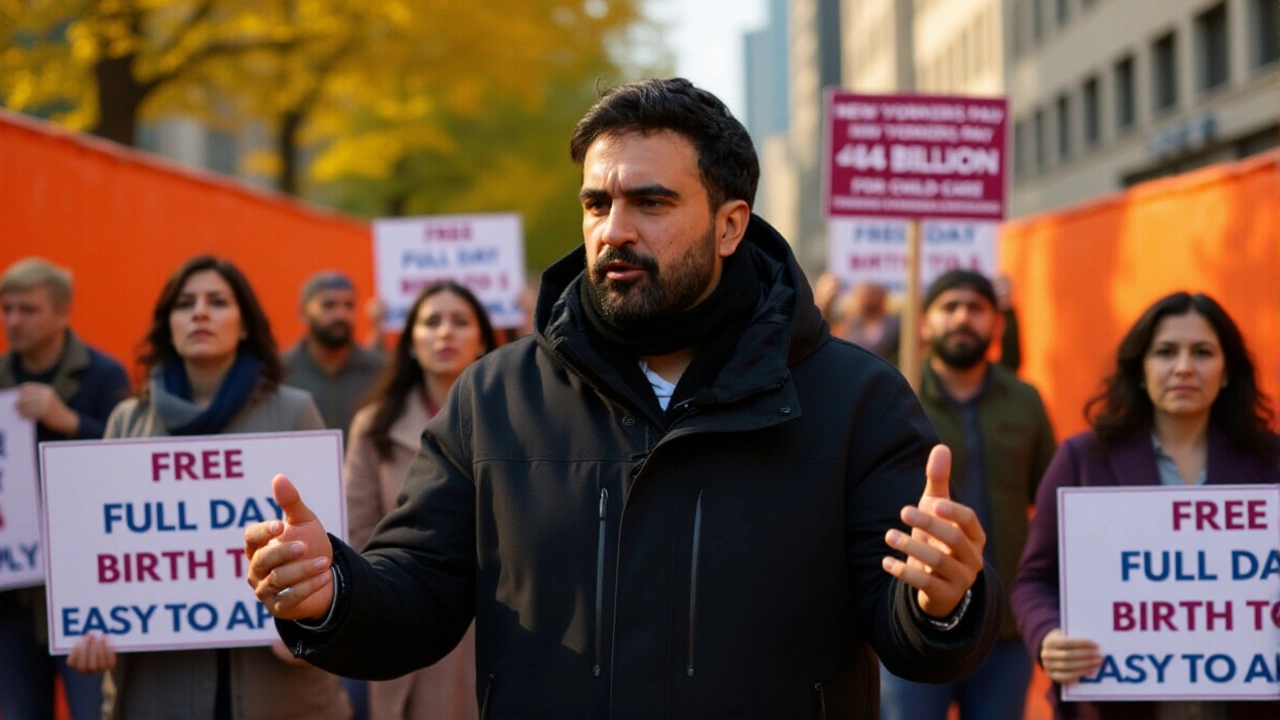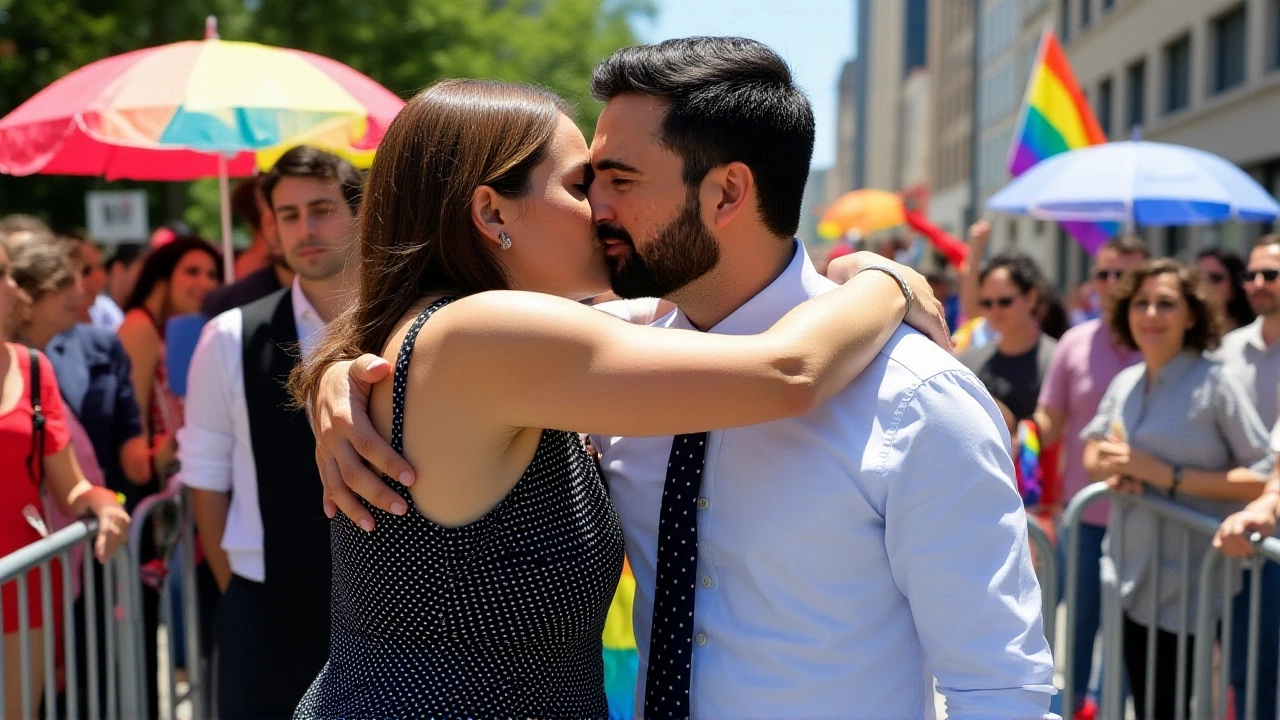Steve Bannon Vows Legal Workarounds to Keep Trump on 2028 Ballot
 Okt, 16 2025
Okt, 16 2025
When Steve Bannon, former White House chief strategist, sat down with Batya Ungar‑Sargon on NewsNation’s program BATYA! on October 12, 2024 interviewAddison, Illinois, he proclaimed that the Trump campaign is already mapping “constitutional workarounds” to keep Trump on the 2028 ballot despite the two‑term limit.
The obstacle Bannon’s referring to is the Twenty‑Second Amendment, ratified on February 27, 1951, which explicitly bars anyone from being elected president more than twice. Donald J. Trump, who held the White House from 2017‑2021 and was sworn in for a second, non‑consecutive term on January 20, 2025, would therefore be constitutionally ineligible to appear on the November 5, 2028 ballot.
Bannon’s Follow‑up on Chris Cuomo’s Show
Five days later, Bannon appeared on NewsNation again, this time opposite former CNN anchor Chris Cuomo. When pressed about the legal impossibility, Bannon answered, “I’m a firm believer that President Donald J. Trump will run and win again in 2028… we’re working on a couple of alternatives… we'll see.” He added that the plan would involve “combating politically and legally in federal courts every second, every day.”
Legal Terrain: Supreme Court & Constitutional Experts
The notion of sidestepping the amendment has attracted attention from the nation’s highest court. Associate Justice Amy Coney Barrett, appointed by Trump in October 2020, hinted in a recent oral argument that the Court might entertain a narrower reading of the amendment’s text. Likewise, Justice Clarence Thomas, a veteran jurist confirmed in 1991, suggested that precedent could allow a “technicality” for a former president returning after a break.
Legal scholars, however, are far from convinced. Yale professor Akhil Reed Amar warned that any reinterpretation would require either a formal constitutional amendment – needing ratification by 38 of the 50 states – or a landmark Supreme Court ruling, both of which are politically unlikely in the next few years.
State‑Level Moves: Billings in 17 States
Adding another layer, Republican legislators in 17 states – including Texas, Florida, Arizona, and Indiana – introduced bills between January and September 2024 aimed at criminalizing “No Kings” protests, a slogan popular among anti‑monarchy demonstrators that resurfaced after the Jan. 6, 2021 Capitol riot. While the bills target protest tactics rather than election law, they signal a broader strategy to tighten the political environment ahead of any legal challenges Bannon hopes to launch after the 2026 midterms.

Impact on the 2028 Campaign Timeline
If Bannon’s “alternatives” materialize, they would likely surface after the November 3, 2026 congressional elections – a date Bannon himself cited as the moment “the appropriate time after the midterms” arrives. That window gives GOP operatives roughly two years to test litigation strategies in lower federal courts, potentially filing suits in multiple circuits to create a split that could force the Supreme Court to weigh in before the summer of 2028.
Should a favorable ruling emerge, the Trump campaign could file for ballot access in all 50 states by early summer, reshaping primary dynamics and forcing Democratic contenders to recalibrate their messaging. Conversely, a failed strategy would waste resources and could reinforce the perception that the GOP is chasing a constitutional dead‑end.
Reactions Within the Republican Party
Party leaders are split. Senate Republican Whip John Thune cautioned that “pursuing a third term” might alienate swing voters, while House Freedom Caucus chair Michael Cloud praised Bannon’s resolve as “the kind of relentless fight our base expects.” Meanwhile, grassroots forums across Iowa and South Carolina buzzed with memes of “Trump 2028” merch, echoing the $35 hats the former president has been selling since January 2024.
Even among Trump’s inner circle, there’s uncertainty. Former chief of staff Mark Meadows reportedly told a senior aide that “the legal gymnastics are interesting, but the political cost could be huge.” The ambivalence reflects a broader dilemma: balancing constitutional constraints with a base that still views Trump as a once‑in‑a‑century figure.

What This Means for Voters
For everyday voters, the debate translates into a question of whether the 2028 ballot will feature a familiar name or a legal controversy that could dominate the election narrative. If courts allow a work‑around, the race could revert to a personality‑driven showdown reminiscent of 2016. If not, the GOP may need to nominate a new standard‑bearer, potentially reshaping the party’s platform on issues ranging from immigration to trade.
Frequently Asked Questions
What constitutional mechanisms could be used to bypass the Twenty‑Second Amendment?
Legal scholars say the only routes are a formal amendment – requiring three‑fourths of state legislatures – or a Supreme Court reinterpretation that narrows the amendment’s scope. Both paths demand extensive political consensus, which makes them highly uncertain before 2028.
How have Supreme Court justices responded to the idea of a third Trump term?
Justice Amy Coney Barrett hinted that the Court might entertain a narrower reading of the amendment, while Justice Clarence Thomas suggested a technical loophole could exist. Neither has issued a ruling, and their comments remain speculative.
Which Republican lawmakers are pushing bills to criminalize “No Kings” protests, and why does it matter?
Legislators in 17 states, including Texas Rep. Ryan Guillen and Florida Sen. Bill Galvano, have introduced measures targeting anti‑monarchy demonstrations. The bills signal a broader effort to tighten the political climate ahead of any legal battles over the 2028 ballot.
What impact could Bannon’s strategy have on the 2028 election timeline?
If successful, lawsuits filed after the November 3, 2026 midterms could force a Supreme Court decision by mid‑2028, allowing Trump to secure ballot access before the primaries. A failure would likely leave the GOP scrambling for an alternative nominee.
How are Trump supporters reacting to the proposed legal workarounds?
Grassroots forums are buzzing with optimism; many fans have already purchased "Trump 2028" hats and merchandise. Yet some longtime activists caution that chasing legal loopholes could alienate moderate voters and distract from policy messaging.